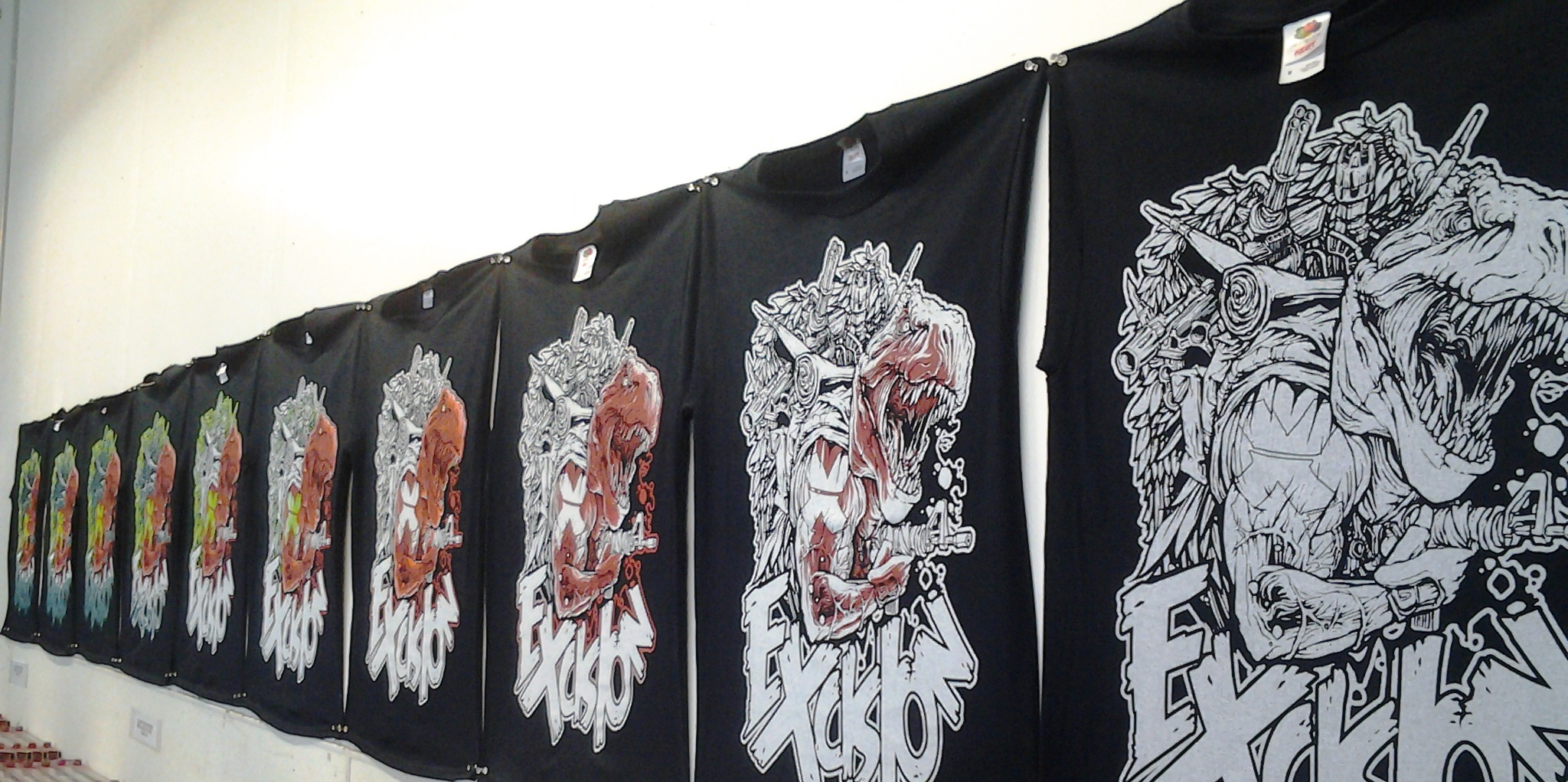
Screen Printing Tips From The Pro’s
We sat down with some of the best and brightest Jakprints employees, LT Magnotto & Jeff Wisenberg, to talk about the ins and outs of screen printing.

LT has worked in color separation at Jakprints for more than a decade and is considered one of the best in the industry.
Color separation is the process of breaking down a full color image into a few colors so that it can be screen printed without the eye seeing the limited number of colors.

Jeff has the honor of being the very first employee of Jakprints. He’s put in 16 years of hard work to help build the foundation of what we have today. Jeff is the head of apparel production, making sure they have everything they need in order to make the best possible product.
Tips for Screen Printing
Some designs work better for screen printing than others but, as LT says, “Everything works, we won’t turn any projects away.”
While we won’t turn anything away, there are some designs that come through that don’t translate to apparel as well as some of our clients hope they will. Here are a few things to remember when designing:
- Thick, dense areas of ink will weigh down a t-shirt and feel unnatural and uncomfortable to wear. Images that are broken up with spaces in the graphic will feel much lighter.
- Any lines smaller than 2 pts will blend together, keep all lines at 2 pts or more for a clear final print.
- The type and quality of the apparel you print on will weigh heavily on the final outcome, “The cheaper the cotton, the worse the print will look. You could have the best print in the world but if it’s printed on low quality cotton, it just won’t look good,” says Jeff, “The garment color and quality factor heavily into the final project. A soft vintage tee with a heavy plastisol image printed on top? It won’t look right.”
We have tons of high quality apparel stocks and different styles, fabrics and colors look different when printed on. If you’re not sure if you design will work with your desired apparel, contact us and we can talk about different options for your project.
“Also, keep in mind that this is a piece of fabric we’re printing on top of so, when it moves the print moves with it. Its not going to have perfect squares, perfect circles; it all moves with the way the shirt moves,” says Jeff.
The biggest tip they both had? Manage your expectations. We make some really impressive prints here but it’s still not magic and it is impossible to print your image exactly as it looks on the screen, “The same design printed on paper will not look exactly the same when it’s printed on a t-shirt,” says Jeff, “The dot you use to screen print is a lot bigger than what we use to print on paper. We don’t have any control over that.”
“Have realistic expectations and respect for the printing process,” — LT Magnotto
How to Design for Screen Printing
The process of designing a t-shirt can be a feat all of its own and, in many ways, is completely different than designing for other types of printed media. Here are some tips from LT to make the process a little smoother for you:
Leave all the technical leg work to us! Don’t worry about bitmaps or halftones, color separation or boogey men, we’ve got a very talented team ready to handle it all.
When you’re designing, make sure you create your graphics in CMYK, RGB or grayscale. Also, be sure to call out your Pantone colors. Doing this will ensure that the colors you print are the exact same colors you want. Invest in a Solid Coated Pantone Book which is a standard tool in most designer’s arsenals.
When you’re working in Photoshop, Illustrator or InDesign, don’t flatten your layers if you don’t have too. Also make sure they are named and grouped if you have a lot of them. Refer to this complete guide to Photoshop Etiquette to make your life a little easier.
Be aware of the quality of the image you are sending us, “Don’t grab low-res images from the internet and expect them to print well.” We request that, for the most part, everything you send us be at 300 dpi or better.
It’s also important to keep in mind what you are designing for while you are creating your images. Know your apparel, different types of fabrics and colors will react differently to screen printing.
Be mindful of designs that go over seams like the hoodie above, “Distress areas that you know are going to be near seams, so that when the ink gets distressed from trying to print over gnarly hems, nobody will think twice about the final product.”

Building on that, choose what you’ll be designing on first then create the art. This will prevent you from creating awesome artwork that can’t be replicated on what you want or with the materials you have in mind. If you can get a design to work in a single color, your possibilities open up tremendously in regards to what you can print on, the colors you can use, the amount you can afford to print, the list goes on.
For more tips and guides to screen printing and designing in general, LT suggests checking out Threads Not Dead: The Designer’s Guide to the Apparel Industry by Jeff Finley, founder of Go Media.
If you have any questions or need to talk about your print project with one of our professionals, give us a call at (1-877-246-3132) or contact us through Jakprints.com! We’re here to help and want to help you get exactly what you need!



